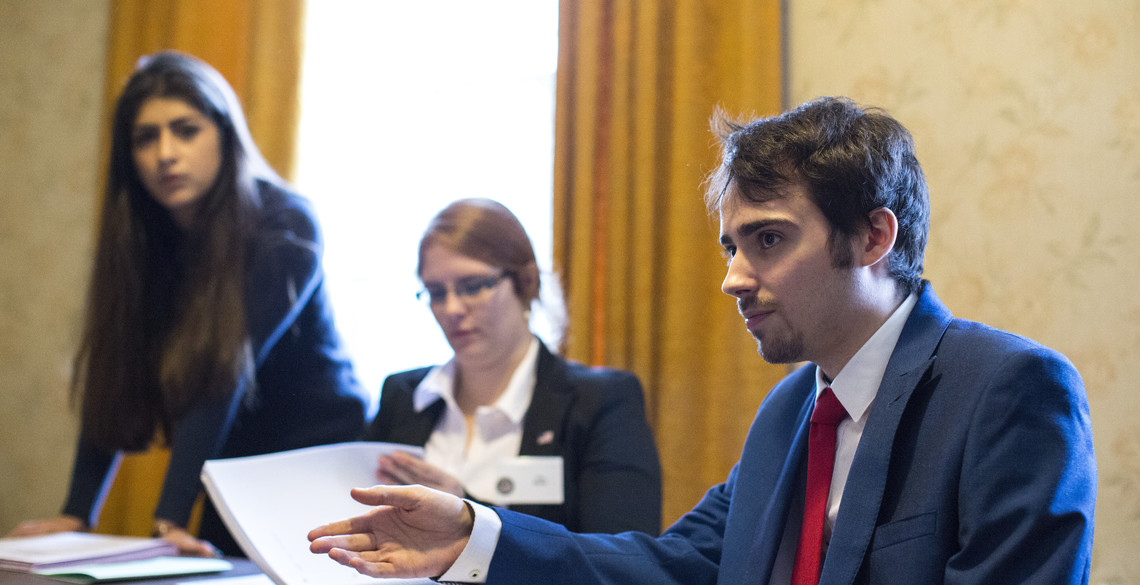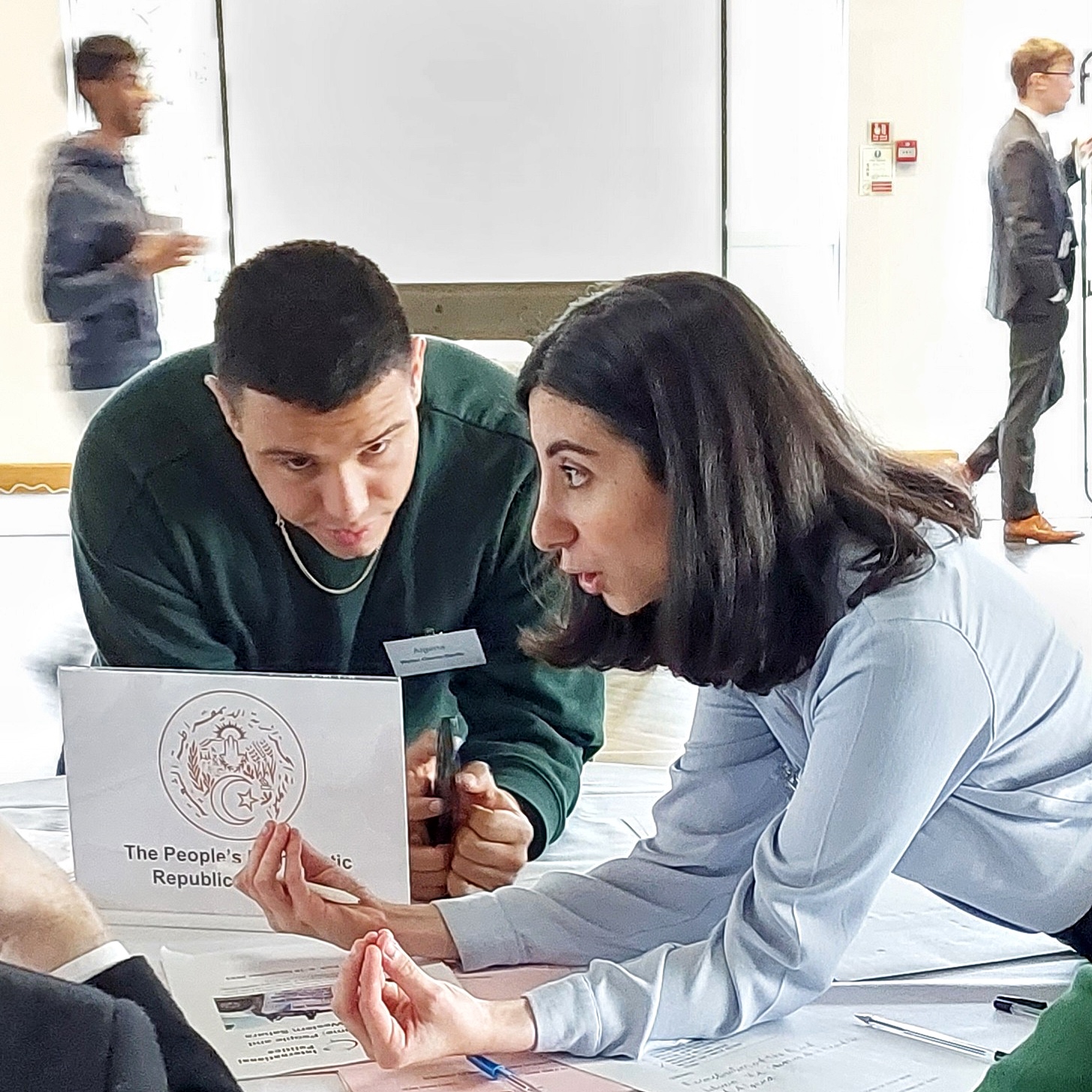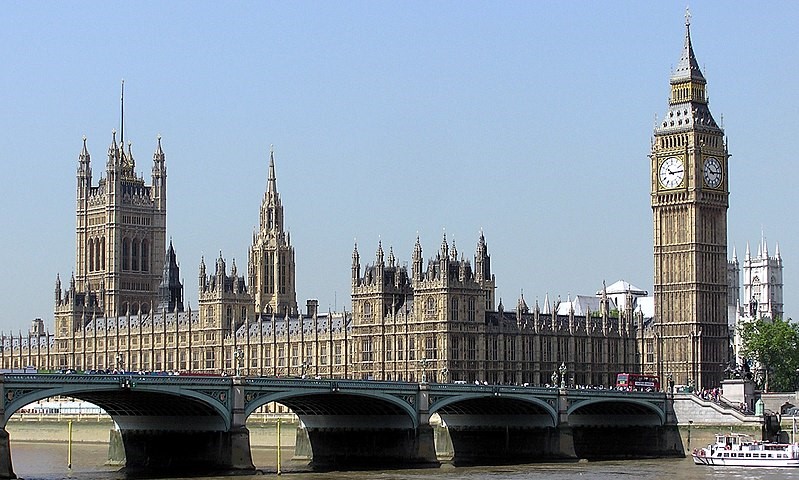Extra-curricular opportunities

There are plenty of opportunities for you to get involved in extra-curricular activities in the Department of International politics.
From our celebrated Crisis Games and Parliamentary Placement Scheme to talks and a range of student societies, there will be plenty to keep you occupied during your time in Aberystwyth, and to develop additional skills that will look good on your CV.
Each semester we run events that bring students and staff together. These include roundtable discussions on topical issues, with plenty of time for Q&A, academic lectures and social events.
International Crisis Simulations
We were the first department in the UK to run crisis role playing exercises which connect classroom learning to the real-world complexities of international politics. These events see students working in teams to solve a fictional international political crisis.
Students work in teams and might represent governments, international organisations, social movements or the media and develop strategic thinking, negotiation, teamwork and communication skills.
Recent scenarios:
- North Korea nuclear crisis
- Mediterranean refugee crisis
- NATO Operations in Afghanistan
- A global pandemic! (in 2018!)
- Environmental politics in the Arctic
They’re held over three days – and they’re free!
Parliamentary Placement Scheme
Our prestigious internship programme, offers the opportunity to work with elected politicians and witness parliamentary politics in action.
Students in their second year can apply for a placement with a Member of Parliament in Westminster or a Member of the Senedd in Cardiff for around three to four weeks at the end of year two. Placements are limited, so students attend an interview and are selected based on having proven that they are enthusiastic about studying politics or international relations, have good interpersonal skills, are capable of adapting to the working environment and can work hard and diligently under pressure. Information on the scheme is released in November with the application deadline in February.
Students get really involved, with roles including research work, assisting with constituency work, attending events and sometimes witness elections. Departmental funding is available to help with costs.
International Exchange Programme
We encourage our students to expand their horizons by studying abroad on our exchange programme for either one semester or for a full academic year on some of our schemes. We have partnerships with a range of Universities in North America, Europe, and the Asia-Pacific. The experience offers a new perspective on your subject, provides new cultural experiences, and is a major asset on the CV.
Student Societies
Students also take the lead in the Department. Some contribute to our student journal Interstate – the oldest in the UK – by writing or editing.
We also host the Interpol Society which runs social and academic events. Aberystwyth has a wide range of student societies too, and staff and students work together in the departmental student-led Diversity Working Group.
Interstate
Interstate is the student-run journal of the Department of International Politics at Aberystwyth, established in the 1960s. It is a published and citable journal of academic work that looks great on your CV. It also provides good writing practice for students working towards dissertations or thinking about further academic study.
Interstate publishes articles covering a range of disciplines within the department, especially those concerned with current geopolitical challenges and how they impact on international relations.
We’re working to publish the next issue on IR themes in May 2025.
We welcome articles from 2nd and 3rd year Undergraduates and Masters students. Articles should be between 2,000-4,000 words using footnote citations. Work can be submitted in English or Welsh.
If you have an article to be considered for publication, please email a brief description of the concept of your article to John Hinchliff, Executive Edictor, jeh79@aber.ac.uk. Those who pass the selection process will contacted individually.


